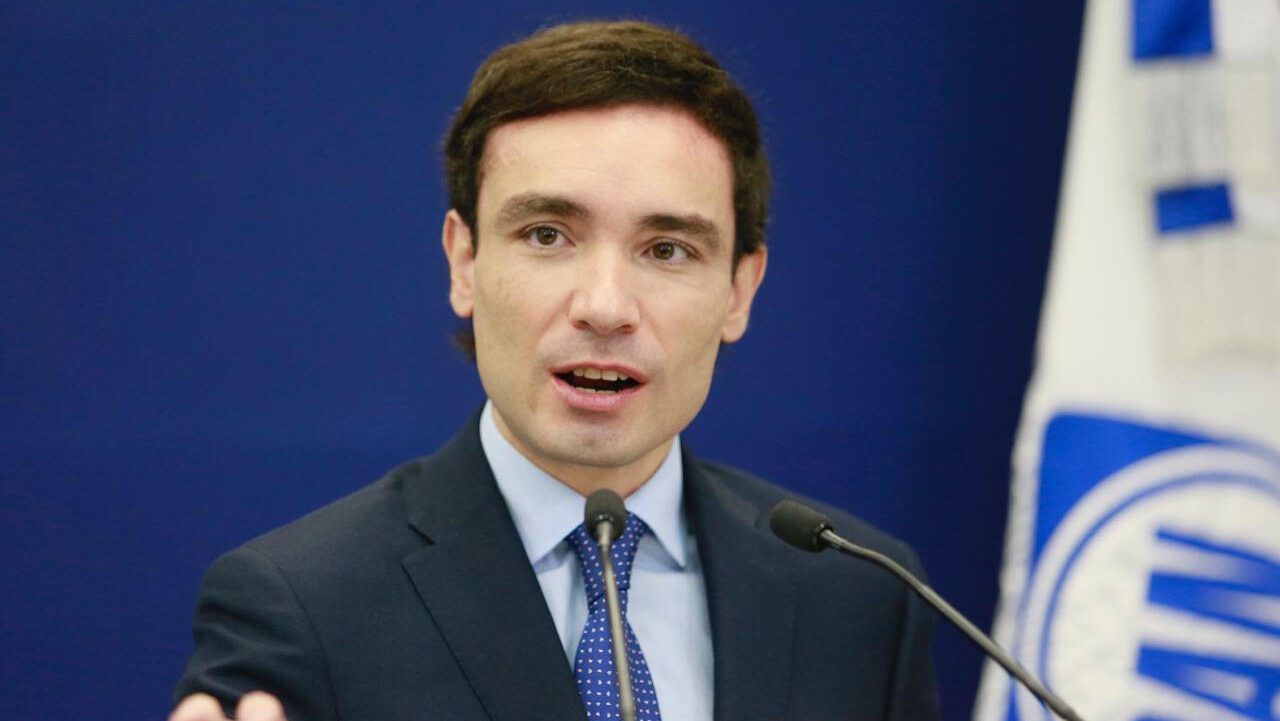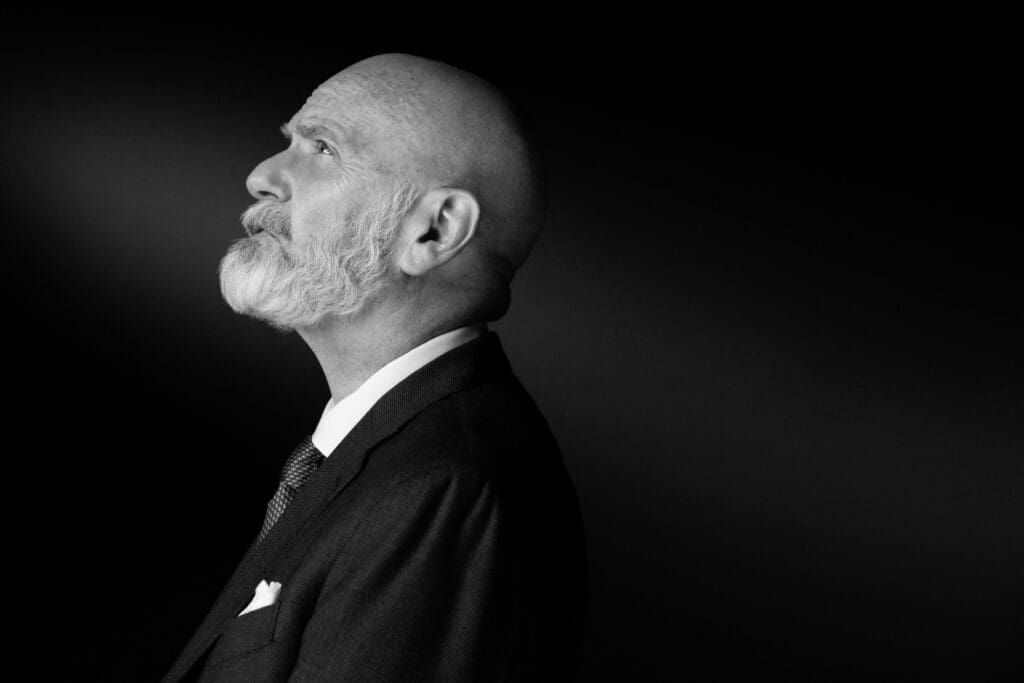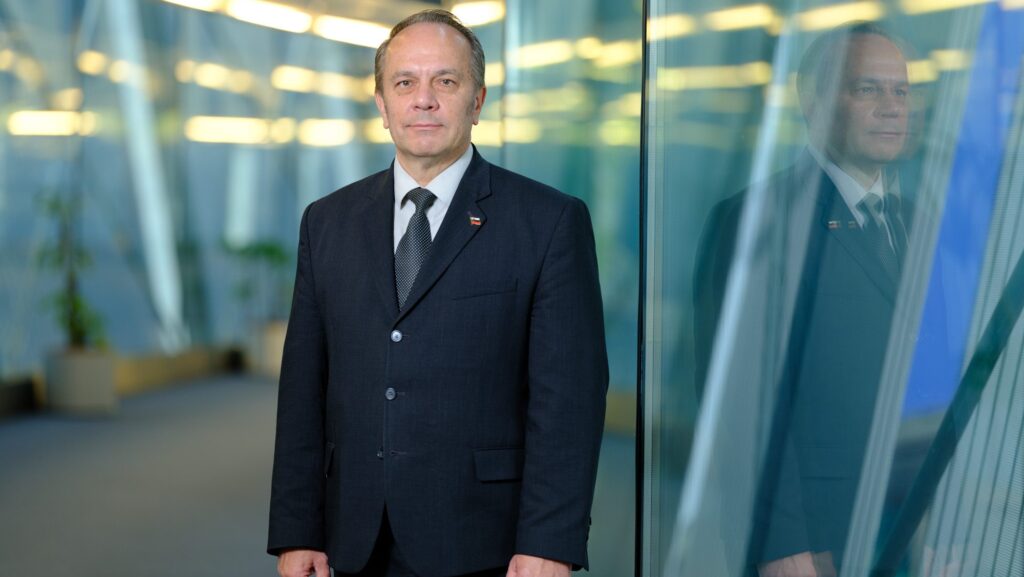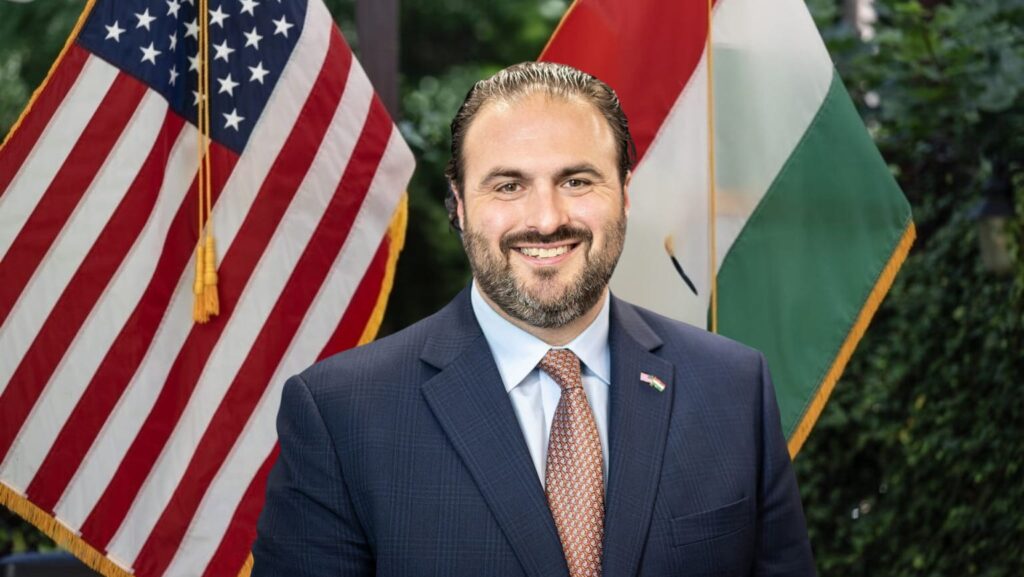During its five years in power, the left-wing socialist presidency in Mexico has made many attempts to diminish checks and balances, to destroy the public institutions charged with limiting the president’s power, and to use the state’s power to persecute the political opposition and journalists. Under the Andrés Manuel López Obrador (commonly known as AMLO) administration, Mexico has seen the legalization of abortion in nine of 32 states, constant attempts to push policies for ’trans kids,’ limitations of the freedom of expression, prohibitions of the nativity scene in public spaces, and many other policies which challenge the human dignity, freedom, and living conditions of Mexicans. Given the current circumstances, one would expect the Mexican Right to understand the importance of a united victory in an election that will determine if Mexico continues to advance down the path of an authoritarian left-wing regime.
While many political analysts thought that the Right had no chance whatsoever of winning the 2024 elections, those expectations unexpectedly shifted when Senator Xochitl Galvez, a member of Partido Acción Nacional (PAN), gained popularity among Mexican voters by suddenly arriving on a bicycle to confront AMLO during one of his morning conferences in his official residence. A charismatic, indigenous woman who is close to Mexican citizens, Galvez was precisely the kind of miracle that PAN needed in order to be competitive in the 2024 elections. Today, PAN is the primary opposition party in Mexico, and this center-right Christian Democrat party has many ways to challenge AMLO and win in the 2024 general elections.
There is, however, a controversy amongst the Mexican right-wing: Although Xochitl is part of PAN, her views have been categorized by some right-wing groups as leftist. These groups argue that Xóchitl has made arguments in favor of abortion and in support of the queer agenda. Enter Eduardo Verástegui, a Mexican actor and pro-life activist who is supported by Trump and some members of the U.S. Republican Party, and who labels himself a true conservative and the only option for Mexican right-wing voters. Verástegui has railed against PAN in comments that have divided the conservative vote within the country, declaring that
In Mexico, PAN has died, and we are not sure that it will rest in peace because it died in a state of disgrace. The leadership of the PAN betrayed its militancy by imposing a candidate who represents the complete opposite of the values that the majority of her followers defend.
Verástegui tried to win the “hearts and minds” of conservative Catholic Mexicans by focusing on a platform against abortion, the LGBTQ agenda, and in favor of freedom and patriotism. However, he failed to recognize that Mexicans have different priorities than American, European, or even Argentinian voters. In a developing country where 36.3% of the population lives in poverty, organized crime violence is increasing, and access to basic services and food is often lacking, his rhetoric of “we are stronger together because we are going to defeat the globalist Left” does not resonate with the real issues that Mexicans face.
The Mexican actor misunderstood the real needs of his fellow citizens, which prevented him from securing enough signatures to become a candidate. This disconnect between his perception and reality continues: having failed to achieve his goal, he is now asking Mexican voters to write his name on the ballot. Doing so would effectively invalidate their votes, ultimately benefiting AMLO’s preferred candidate, Claudia Sheinbaum.
The Christian Democrat party faces a difficult decision: either to support the person most likely to defeat AMLO’s candidate and thereby restore democracy, or to support a candidate who represents conservative values but doesn’t have enough popular support to obtain the majority of votes. The 2024 elections, to be held on June 2, are a battle that must be strategically fought, for democratic institutions, individual liberties, and peace within the country are at stake.
The complex Mexican political circumstance requires the best decisions to be made, for there is too much at stake at both a national and international level if AMLO’s Movimiento Regeneración Nacional (MORENA) remains in power. But is PAN truly dead if they decide to support Xochitl? In the first book of On War, the Prussian military philosopher, Carl von Clausewitz, wrote that, in wartime, the worst mistakes come from kindness and from kind-hearted people who believe that there is an alternative to defeating the enemy. In the case of political elections, the mistake of being too naïve and too kind-hearted in supporting a hopeless candidate can be as disastrous as an excess of kindness in war.
To understand more about the context of the 2024 Mexican Elections, I interviewed Fernando Doval, Secretary of Strategic Studies of PAN’s National Committee.
You are a member of PAN; you influence the agenda and direct one of the central decision-making bodies. Do you think Verástegui’s project is viable? What risks does his project pose for Mexico and for conservative movements?
Political dynamics in Mexico at the moment differ from those in other countries around the world, where the ideological dimensions of the right-wing and the left-wing compete. At the moment, political competition in Mexico has to do with the defense of democracy against a populist authoritarianism which is inspired by Latin American Bolivarian regimes.
Facing this political and electoral scenario, the two poles of competition are unlike those found in countries where there is an ideological battle between the Right and the Left. In Mexico, we are talking about a battle between a left-wing populist authoritarian side—that is what MORENA represents—and a coalition of different parties and civil society movements that seek to safeguard democracy in Mexico.
When there are no longer threats to democracy in Mexico, we can move towards a discussion centered on purely ideological issues.
I respect any movement that may arise, but I think Verástegui’s supporters have to analyze whether their project is viable. Many of their demands may be valid, but, at this moment, we are trying to avoid MORENA continuing to hold the executive branch. The continuation of MORENA is an existential threat to democracy and, to defeat it, we must join forces.
MORENA is a party with a very radical extreme Left ideology; it has a vision inspired by what we could consider a culture of death. That is why we need to defeat them and why it is crucial not to divide our efforts.
Many members of the party and their supporters disagree with this decision made by the party’s leadership; they believe it is a betrayal of the party’s values. Would Xóchitl becoming president mean that PAN can no longer do anything in support of life and family?
That analysis is incorrect. Xóchitl Gálvez is not an activist in favor of issues contrary to the values of PAN. Some people have been building a narrative which does not correspond to her career in public life. Galvez merely said that a woman who engages in this practice should not necessarily be put in jail, which is very different from her being an abortion promoter or activist. She has insisted, as PAN also insists, that pregnant women must be supported. In Mexico, there is currently no support for pregnant women from the government.
Secondly, we must understand that the issue of abortion in Mexico is controlled by the local government of each state. MORENA governments and legislators have promoted abortion in the states, but abortion is not an issue over which the president has authority. Within the states governed by MORENA, these issues have been approved and turned into legislation and policy.
Moreover, PAN legislators are consistently defending life and family, particularly in the states where MORENA has promoted and legislated in favor of abortion. In my case, when I was in the local congress of Mexico City, we fought to defend life when MORENA tried to promote aggressive legislation against the family and life. It was the PAN members who opposed their efforts.
You have been in charge of supervising the electoral scenarios of PAN for several years now. Empirically and electorally speaking, why do you think the Frente Amplio por México project with Xóchitl is viable as opposed to Verástegui’s project? Could you give us some context about how the Mexican electoral and party system works?
We must take into account an electoral rule that exists in Mexico. In a presidential election, the candidate who has one more vote than the second place is the legitimate president of the republic, meaning that there is no second round whatsoever. This rule influences the alliances and choices of candidates that political parties make before an election.
Each vote needs to be used as wisely as possible. Currently, the government dominates the Mexican electoral apparatus, and AMLO is using the power of the state in a factional and sectarian manner to benefit Claudia Scheinbaum (AMLO’s presidential candidate). For this reason, we must ensure that our vote is used as best as possible, and seek to maximize its utility.
The 2024 elections in Mexico are not typical elections; there is a real risk for our democracy, individual and political liberties, and institutions if MORENA wins.
What is your response to the statement that Verástegui made regarding PAN? Has PAN died because of the simple fact of supporting Xóchitl Gálvez to become president?
PAN is very much alive. We have just celebrated 84 years of operation; and we are the leading opposition party in Mexico, both at the parliamentary level and at the level of local and municipal governments. We are the party that has defended democracy and freedom in Mexico best. In that sense, we have high expectations that, in the next elections, and together with other parties with which we have formed a large opposition front, we will be able to win the presidency. There will again be freedoms and respect for the constitution, laws, and democracy which, unfortunately, we have lost in these five years with AMLO.
PAN was born in 1939, when a deeply authoritarian regime was being consolidated in Mexico—a government that lasted seven decades. During those decades, PAN was a great promoter of electoral and political reforms that built Mexico into a democracy and encouraged moving towards a scheme in which the president would no longer have all the power. The PAN was the great promoter of these reforms. The first change in the executive power occurred with a PAN member, Vicente Fox, and then Felipe Calderón.
Our doctrine is named “political humanism.” This doctrine is inspired by Christian humanism and the social doctrine of the Catholic Church. PAN defends some values that have traditionally been associated with conservative thought. If we go to the philosophical roots of conservatism, we can say that the PAN shares a very similar vision about the defense of traditions concerning the defense of history, life, family, and the importance of religion in private and public spaces. PAN has been a great promoter of religious freedom in Mexico, which has otherwise had very secularist and Jacobin legislation.
PAN has always defended the private and social market economies, so we clearly have conservative elements. We also assume some elements of classical liberalism, which defends a space for people and for communities: establishes limits upon the state, advocates the separation of powers, and promotes the expansion of public freedoms. In Europe, PAN would probably be considered Liberal-Conservative. We maintain ideas from conservative and classical liberal authors such as Edmund Burke, John Locke, Roger Scruton, and Alexis de Tocqueville.
The values of defending life and family will be included in our electoral platform and, of course, also in the electoral platform of the Frente Amplio por México, which includes the parties of PRI and PRD, as well. And, of course, PAN will continue to be a party that defends these values in the future.





